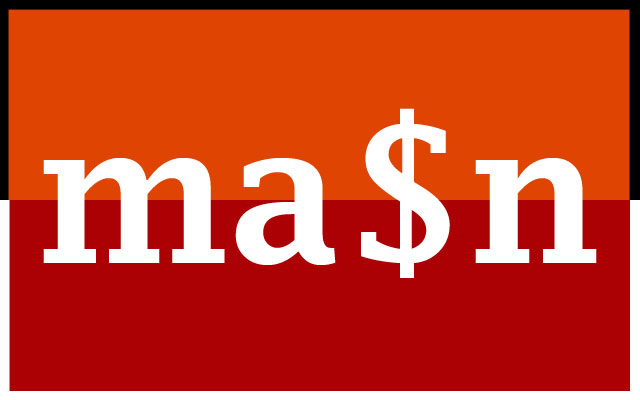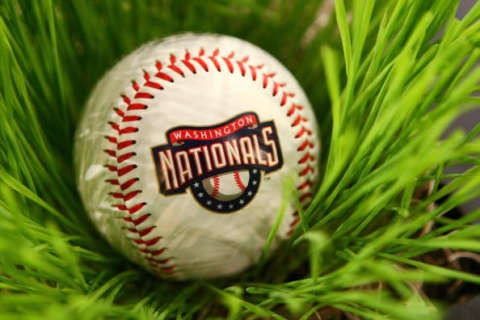WASHINGTON — The Nationals’ offseason took another turn for the worse Wednesday when New York Supreme Court Judge Lawrence K. Marks tossed out an arbitration decision that would have paid the team nearly $300 million in television rights money from the 2012-16 seasons. This is just the latest twist in a yearslong legal battle that could have ramifications for the team’s payroll, as well as its future television home.
For those just getting caught up on the whole affair, we detailed the origins and history of the dispute last year. The upshot is that Major League Baseball’s award of backdated licensing fees from the Baltimore Orioles and the Mid-Atlantic Sports Network to the Nationals from the 2012-26 seasons now will not happen, leaving the two sides still at odds and still without a solution to either’s liking.
Significantly, the primary reason Marks tossed the decision was that he ruled there was a conflict of interest in the way it came about. The law firm Proskauer Rose, which represented the Nats, had also worked at times for Major League Baseball, as well as the three teams represented on the arbitration panel. The fact that these concerns were not seriously addressed served as the crux of Marks’ ruling.
“MASN and the Orioles have established that their well-documented concerns fell on entirely deaf ears,” Marks wrote in his 30-page ruling. “The court concludes that this complete inaction objectively demonstrates an utter lack of concern for fairness of the proceeding.”
The Nationals can still appeal the ruling, but that would mean another year or two of court filings and legal fees without any guarantee of an amicable solution. Additionally, this whole affair has dragged on so long, that the next window to renegotiate rights fees (per the original contract) will be upon us in 2017.
“If the current conflict remains, the parties might meet and confer regarding whether they can … agree to a different neutral dispute resolution process,” wrote Marks.
“There are really two choices — either reach a settlement, or use a third-party arbiter, such as the American Arbitration Association,” says Eric Fisher of the Sports Business Journal, who has covered the dispute.
Considering the acrimony that persists between the sides, the former doesn’t really seem to be a viable option. That means bringing the issue before another third-party decision maker, which leaves the status of the entire situation just as up in the air as it has always been.
“Everything is kind of status quo for now,” says Fisher. “The Nationals will keep getting $40-$43 million per year in the meantime. It’s really now up to the parties to figure it out themselves.”
That figure is roughly $20 million less per year than the Nationals were due from MLB’s ruling. It’s impossible to say whether the Nationals were factoring the expectation of that money into their payroll, which has gone from $112 million in 2013 to $135.5 in 2014 and $168.6 million last year, the fifth highest in baseball. While they’ll clear some big salaries with free agent departures like Ian Desmond ($11 million), Doug Fister ($11.4 million), Denard Span ($9 million) and Jordan Zimmermann ($16.5 million), they still are on the hook for about $90 million in guaranteed contracts for 2016 before even dealing with arbitration-eligible players or potential free agents.
Will the ruling affect their ability to spend as much as they have in recent seasons?
“Not necessarily,” says Fisher. “We’ve never had any sort of conclusive proof that they were hanging their hat on the results of this decision. There are other revenue lines. They’ve had pretty healthy attendance. National media rights, digital media rights are all rising dramatically. So there is some counterbalance to what they may not be getting here.”
From the larger view, should the Nationals ever be able to secure a ruling in their favor that would pay them something close to what they have asked for, the annual number might be more than MASN can afford to pay them. A more reasonable long-term solution may be splitting off into their own network, something it was revealed in court documents that former MLB Commissioner Bud Selig attempted, trying to negotiate a sale to Comcast for more than $1 billion.
Might there be an alternative to Comcast, though? In his Ask The Owner interview with WTOP last year, Washington Wizards and Capitals Owner Ted Leonsis said he hoped to eventually turn his Monumental Network into a broadcast operation capable of airing live games.
“We know how to broadcast games,” Leonsis said, specifically pointing out that the network already handled preseason games for the Caps and Mystics. “We’re very proud of the work we’re doing to be ready for one day, if our rights burn off. We want to work with Comcast, but if we can’t, then we’d launch the Monumental Network. It’s pretty simple.
Considering that the Lerner Family is an investor in Monumental Network and friendly with Leonsis, the roots for a healthy business partnership seem to be in place. For what it’s worth, the Caps’ contract with Comcast is up after the 2016-17 season as well, the same point as the next renegotiating rights window for the Nats and MASN. Fisher thinks it may be a less likely scenario, though, due to the more centrally operated rights landscape in baseball as compared to other sports, as well as the constantly evolving landscape of regional sports networks.
“It presents a whole other issue in getting distribution,” Fisher says, pointing to the troubles both the Astros and Dodgers have had in recent years. “There’s not necessarily a ton of room on the dial. People may not want to pay for another channel. “That is tough sledding to try to go out there and get going from scratch.”
Considering the saga they’ve already been through will no tangible progress, though, any alternative to MASN may be a good one.






